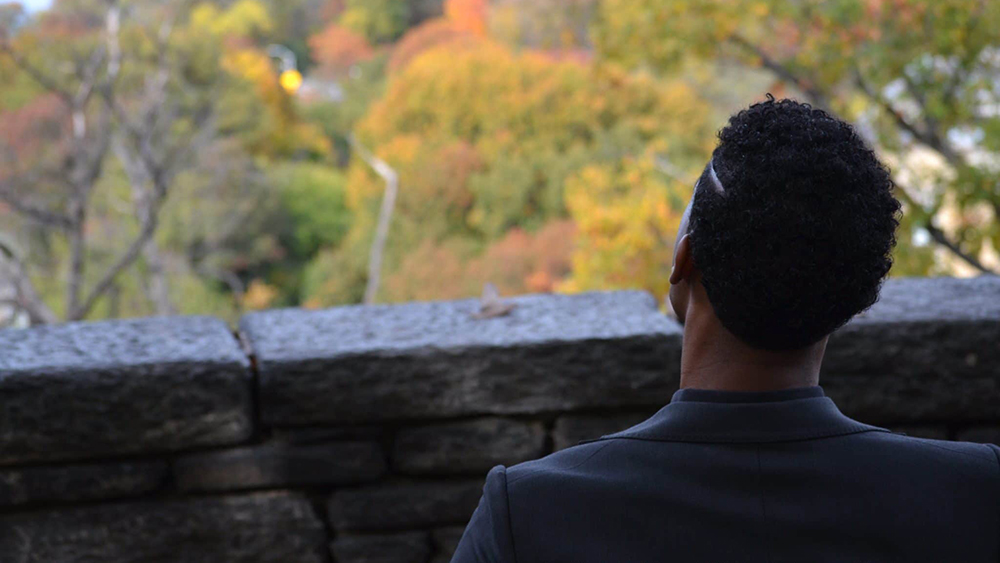This piece was submitted from a member of our enthusiastic community of readers. If you’re interested in sharing your opinion on any cultural, political or personal topic, check out our how-to post to learn more.
Many of us have seen the hashtag #NationalMinorityMentalHealthMonth, but so few of us know how and why it started. If you don’t understand the history of something, you don’t understand why it affects you in the way that it does. July has been marked as Minority Mental Health Awareness Month on a national level and it's dedicated to the unique struggles that underrepresented groups face in regard to mental illness.
In an effort to shed light on the movement and highlight some amazing change-makers in the field of mental health, I have created another hashtag, #MentalHealthMover, to celebrate and honor those who are working to ensure all people be healed, with a special emphasis on minorities. People of color are disproportionately impacted by mental illness, more than that of our white counterparts. Background and identity make access to mental health resources extremely difficult while creating longer lasting impacts on one’s overall health and well-being.
Mental illness does not discriminate on the basis of culture, sex, race, socioeconomic status, etc. But there are certain populations who experience difficulty accessing culturally competent care. Mental health problems are common among those in the criminal justice system, which is a disproportionate representation of ethnic minorities. African Americans alone are incarcerated at five times the rate of whites. Incarceration takes a toll on the whole family and has catastrophic impacts on the mental health of the entire family system. National Minority Mental Health Awareness Month, established in 2008, is starting to change this.
Here are some mental health movers you should know during National Minority Mental Health Month:
Bebe Moore Campbell
"Once my loved ones accepted the diagnosis, healing began for the entire family, but it took too long. It took years. Can't we, as a nation, begin to speed up that process? We need a national campaign to destigmatize mental illness, especially one targeted toward African Americans…It's not shameful to have a mental illness. Get treatment. Recovery is possible."
–Bebe Moore Campbell, 2005
We would be remised to not honor Bebe Moore Campbell as a #MentalHealthMover. Campbell was an author, advocate, co-founder of NAMI Urban Los Angeles and national spokesperson, before she passed away in November 2006 (NAMI). Alongside the D.C. Department of Mental Health and other supporters, Campbell held mental health checkups for the residents of Southeast D.C. Campbell would continue her long-standing mental health advocacy up until the day she died from cancer. After her death, the community and those closest to her advocated for a month to be dedicated to focusing on mental health as Campbell had done throughout her life. Representatives Albert Wynn [D-MD] and Diane Watson [D-CA] co-signed legislation to create an official minority mental health awareness month (NAMI). We honor Bebe Campbell for her relentless efforts to ensure minorities received the care they needed when it came to mental health. She is a true #MentalHealthMover!
Mamie Phipps Clark and Kenneth Clark

The #MentalHealthMover campaign during #NationalMinorityMentalHealthMonth kicks off with Mamie Phipps Clark and Kenneth Clark for their work in the field. Mamie’s master thesis was "The Development of Consciousness of Self in Negro Pre-School Children." Her husband, Kenneth Clark, helped her to extend her thesis research on self-identification in Black children. This work was later developed into the famous "doll experiments" that exposed internalized racism and the negative effects of segregation for African-American children.
The Clarks were the first African-Americans to obtain their doctoral degrees in psychology from Columbia University. Kenneth was the First African-American tenured full professor at the City College of New York, the first African-American to be president of American Psychological Association (APA) and the first African-American appointed to the New York State Board of Regents.
During this, #MinorityMentalHealthMonth be sure to follow @TherapyWithAsh on Instagram to see each spotlighted #MentalHealthMover. Also, feel free to nominate a #MentalHealthMover in your community who is doing amazing things for minority mental health.
I strive to help others find happiness and healing within themselves through unpacking their baggage, healing from racial trauma, resting, reflecting and restoring themselves to be who they were intended to be on this earth. When we work on our mental health, we add years to our lifespan. Remember to check up on yourself and each other so we may all be well.

